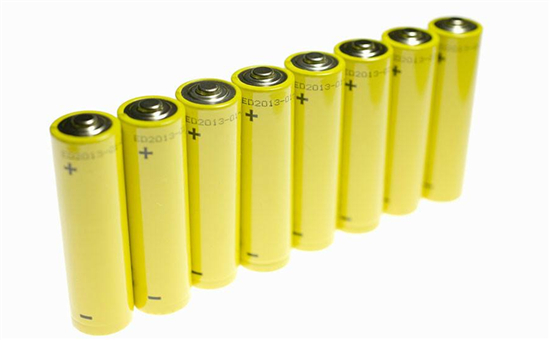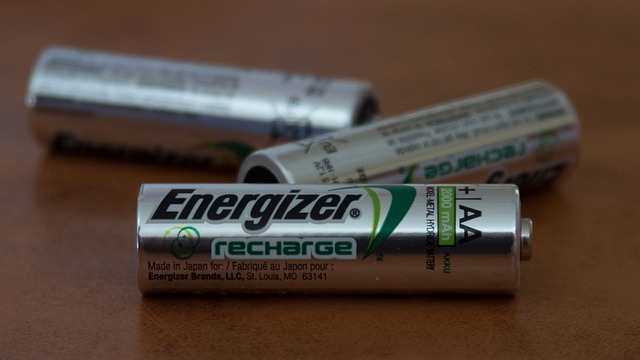Lithium Sulfur battery review
Dec 05, 2019 Pageview:3481
Technology has been advancing day by day. Everything is going towards incredible innovation in its own niche that the previous models and equipment are no longer to be used by anyone.
Similarly, there also happened innovation in batteries in the past few years. Batteries that are being used these days are much powerful and effective as compared to the batteries used in past time. They offer better performance, improved lifespan, and faster-charging speed. One of those commonly used batteries is lithium sulfur.
What is Lithium Sulfur Battery?
It is a sort of rechargeable battery which is popular for its high explicit energy. The lowspecial load of lithium and a moderate load of sulfur imply that lithium-sulfur batteries are generally light about the thickness of water. They were utilised on the highest and longest altitude solar-powered plane trip in August 2008.
Lithium-sulfur batteries may succeed lithium-ion particles because of their higher energy and decreased expense from the utilisation of sulfur. Currently, the best lithium-sulfur batteries offer explicit energies on the request of 500 W, essentially superior to most 150 to 250 W scope offering lithium-ion batteries. In the middle of the year 2014, no Lithium Sulfur battery was industrially available.
The key issue of Lithium Sulfur battery is low electrical conductivity of sulfur cathode requiring an additional mass for a conducting operator while the recent research focus is to discover profoundly conductive cathodes.
Working of Lithium Sulfur Batteries
Chemical processes in the Lithium Sulfur cell incorporate lithium disintegration from the anode surface during discharge and invert lithium plating to the anode while charging. This thing differs from traditional lithium-ion cells, where the lithium particles are intercalated in the cathodes and anode.
Each sulfur molecule can have two lithium particles. Normally, lithium-ion batteries contain just 0.5 to 0.7 lithium particles per atom while Lithium Sulfur takes into allows a lot higher lithium storage capacity.
The primary difficulties of Lithium Sulfur batteries are the low conductivity of sulfur and its monstrous volume change after discharging. Finding the suitable cathode is the initial step for commercialisation of Lithium Sulfur batteries. Therefore, most of the researchers utilise a lithium anode and carbon/sulfur cathode. Sulfur is quite cheap but it does not have electroconductivity. The carbon covering gives the missing electroconductivity to the sulfur. Carbon nanofibers give a successful electron conduction way and structural integrity for a higher cost.
One issue with the lithium-sulfur configuration is that when the sulfur in the cathode absorbs lithium, the volume of LixS composition expands while the anticipated volume development of Li2S is almost 80% of the volume of the first sulfur. This causes enormous mechanical weights on the cathode, which is a primary reason for quick degradation. This procedure diminishes the contact between carbon and sulfur and restricts the flow of lithium ion to the carbon surface. Mechanical properties of the lithiated sulfur elements are highly dependent upon the lithium content. With the expansion of lithium content, the quality of lithiated sulfur elements improve.
One of the essential defects of most Lithium Sulfur cells is an undesirable reaction with the electrolytes. While Sulfur and Li2S are generally insoluble in many electrolytes, while most of the polysulfides not. Dissolving Li2S into electrolytes causes irreversible loss of dynamic sulfur. Use of very receptive lithium as cathode causes separation of most of the regularly used other electrolytes.
Lithium Sulphur Battery Advantages and Disadvantages
Lithium Sulfur batteries offer both advantages and disadvantages to the users. These advantages and disadvantages rely upon their behavior in different circumstances. So, here are some of the advantages and disadvantages of Lithium Sulfur battery.
Advantages
1.One of the advantages of Lithium Sulfur Batteries high energy density. There are some of the appliances that require more energy density as compared to normal electronic equipment such as mobile phones. They need that power so that they can function properly. In this case, Lithium Sulfur proves too much beneficial because they are capable to offer such energy density that is required for such appliances like cars. These batteries properly support such appliances so that they can function successfully.
2.Lithium Sulfur batteries do not require much maintenance as compared to other batteries such as lithium-ion batteries. They are considered as the most resistant batteries that do not easily get affected in hard environments and they long-last for a couple of years.
3.Self-discharge is one of the major issues that offered by lots of batteries. They discharge automatically even if there no devices are connected to them. In this case, if they remain unused for a couple of months, they will lose all of their charging because of their self-discharge property. While Lithium Sulfur batteries do not function on this method. They don’t discharge power on their own.
Disadvantages
1.Transportation is one of the major disadvantages of Lithium Sulfur batteries. Almost every airline company restricts lithium-sulfur batteries to carry in the plane because of the chemicals used in them.
2.Lithium Sulfur batteries are quite expensive as compared to other batteries. This is another drawback of these batteries. you can buy almost 2 to 3 lithium-ion batteries in the amount in which you will get a Lithium Sulfur battery.
Lithium-sulfur vs lithium ion
Well, both batteries are good in their own situations. You can only decide according to your requirements and preferences that which one is better than others. If you consider these batteries quality-wise, then Lithium Sulfur is better than Lithium-ion battery. It offers more benefits as compared to Lithium-ion. If you are considering them cost-wise, then Lithium-ion is better because it is cheaper than Lithium Sulfur batteries. So, it is all up to your requirements that which factor do you prefer to be in the battery.
Well, above has described some of the key factors about Lithium Sulfur battery. Consider all of these facts about Lithium Sulfur batteries and choose it as your option.
Also, visit our website https://www.large.net/ to purchase this incredible product. We offer Lithium Sulfur batteries at a very reasonable price. We also offer best after-sale services that you will not find anywhere else in the market.
- Prev Article: How to Repair Lithium Battery?
- Next Article: How Long 18650 Batteries Last?
Leave Message
Hottest Categories
-
Hottest Industry News
-
Latest Industry News












